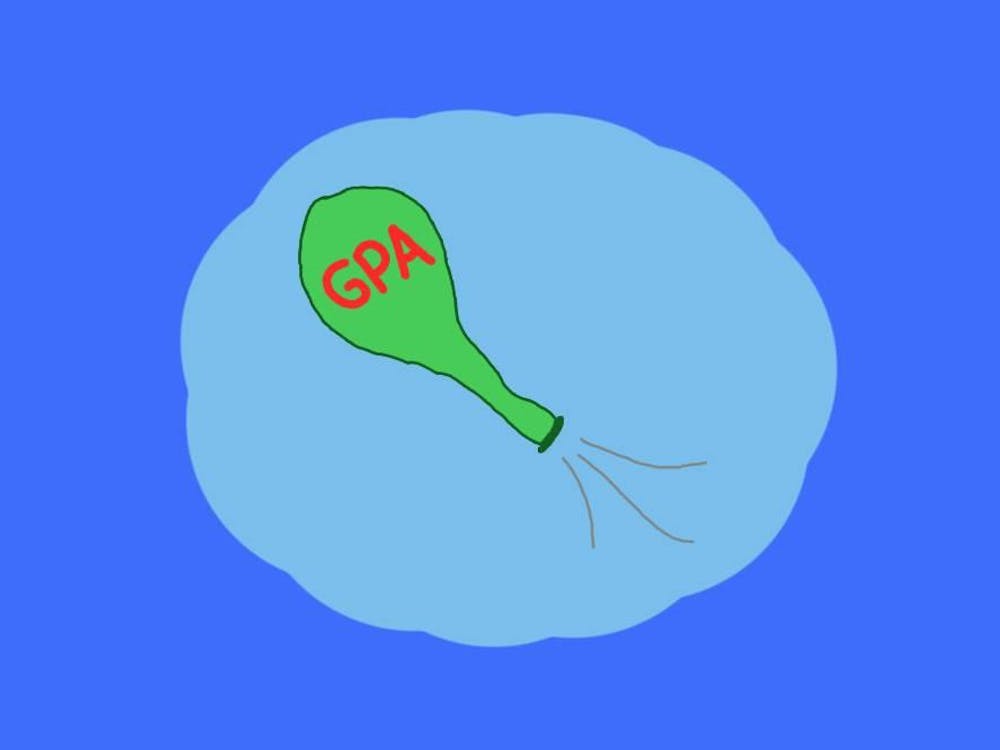EXPERIENCING sorority rush as a sister has taught me a lot. I've learned that you can forget about hunger and that hurting feet eventually go numb. But most of all, the process has reinforced in me the time-honored adage that you can't judge a book by its cover. First impressions can be lasting, but they almost never tell the whole story. Getting to know people is what counts, and people never should be qualified based on their behavior, especially by a president.
That's why I did a double take when I read that presidential hopeful Sen. John McCain (R-Ariz.) said to campaign-trail reporters that he could tell if some people were gay by "attitudes and by behavior" ("McCain says he can identify gays by behavior, attitudes," The Washington Post, Jan. 18).
McCain made this comment to reporters while on his "Straight Talk Express" campaign bus. According to the Post, he said he had served with many gays during his time in the Navy, despite the fact that no one ever revealed a homosexual preference to McCain. He said he was able to tell from a person's behavior.
McCain did say that, even though he thought he could tell whether someone was gay, he thought it was a personal matter and would not make it an issue.
But that does not excuse the fact that he has told the public that he can categorize people based on the way they walk, speak or interact with others. That's called stereotyping, and it's a dangerous habit to fall into.
Everybody draws meaning from how people look or how they act, but behavior just isn't enough to go on especially when making assumptions about someone's personal life. Stereotypes from the last decade and even before concerning gays and lesbians still linger.
Not all gay men are overtly feminine, and they don't all go out to clubs dressed up in platform shoes and feather boas. There may even be straight men who do so, simply because it is what they like. And not all lesbians are masculine in their behavior and like sports more than other women. Those stereotypes of the homosexual population are not the whole picture and should not be taken as so.
But McCain's comment goes beyond gay and lesbian stereotyping. If he can determine sexual orientation by examining behavior, can he tell if someone is suffering from depression, or an eating disorder? Can he tell if a person has an alcohol or substance abuse problem?
If he can, then he's got a gift only friends of Dionne Warwick have, and if he can't -- but chooses to draw conclusions publicly anyway -- he's offering Americans a peek at what kind of a president he would be.
We may all think that we can read a person and tell what is going on inside his head to a certain extent, but backing those assumptions up by actually talking to the person is an absolute must. McCain said, "I think it's clear to some of us when some people have that lifestyle. But I didn't pursue it, I wouldn't pursue it and I wouldn't pursue it today."
He would not pursue it. He would assume a person's sexual orientation by his or her behavior, and then keep that picture of him or her in his head without checking with the individual first. Hardly a quality I look for in a presidential candidate.
And thinking ahead, it is troubling to think that a President McCain could employ similar stereotypes while in the nation's top office.
As rush slowly moves on, I will meet more and more girls, all eager to give me a snapshot of who they are. But with each round I have to remember that there is so much more to each person than what she says. I have to remember that what I see at first doesn't paint a perfect picture -- good or bad. Certainly our president should be able to remember the same.
(Erin Perucci is a Cavalier Daily associate editor.)




